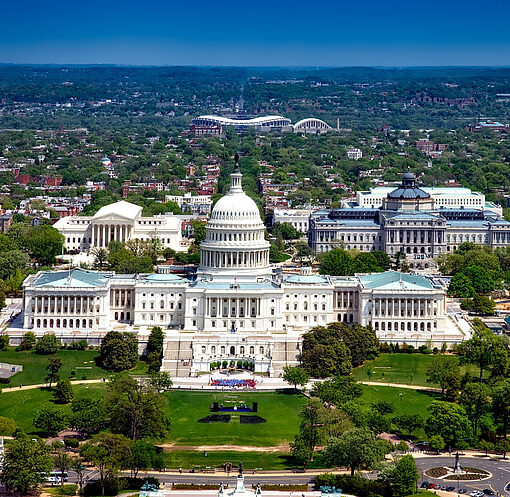 Justin Gundlach
Justin Gundlach
Climate Law Fellow
Greenpeace Southeast Asia and the Philippine Reconstruction Movement filed a Petition with the Philippines’ Commission on Human Rights (CHR or Commission) on September 22, 2015 on behalf of 13 organizations and 20 individuals. The Petition makes several allegations and requests. At its core is a claim that 50 of the “Carbon Majors”—a list of state- and investor-owned companies that include Chevron, ExxonMobil, Rio Tinto, Lukoil, Massey Coal—have knowingly contributed to the root causes of anthropogenic climate change and ocean acidification, and have thereby violated the human rights of Filipinos suffering harms traceable to, inter alia, sea level rise and changes to ocean chemistry and temperature. The Petition named only investor-owned companies; of those it named, 10 maintain corporate branches in the Philippines; those 10 include the top 4 emitters according to the Petition.
The Petition is novel both for basing its legal claims on human rights principles and for alleging facts that assign responsibility for a specific fraction of 250 years of GHG emissions to particular entities.
Jurisdiction
CHR Chair Chito Gascon announced that the petition was welcome, but noted that it presents a set of issues that are novel for the Commission. Article 17 of the Filipino Constitution of 1997 establishes the Commission and charges its members with investigating alleged human rights violations—including on the part of the Filipino government—and with recommending to the executive and legislative branches appropriate responses to identified violations.
In support of its argument that the Commission has jurisdiction, the Petition cites the 1987 Filipino Constitution, deliberations from the 1986 Constitutional Convention, a 1993 Filipino case interpreting the scope of rights available under the Constitution, and the Commission’s Rules. Because those documents do not expressly articulate the compass of “human rights” as including protection from environmental harms, Petitioners also highlighted supportive language from several UN documents, including a 2008 UN Human Rights Council (UNHCR) resolution, a letter from the UNHCR to the UN Framework Convention on Climate Change, and the UNHCR’s Guiding Principles on Business and Human Rights (Guiding Principles) as endorsed by a 2011 UNHCR resolution. The Petitioners drew heavily from the Guiding Principles to articulate not just the CHR’s jurisdiction over the Carbon Majors in this case, but also the Carbon Majors’ duties to respect the human rights of Filipinos adversely affected by climate change and ocean acidification.
The Factual Allegations
The factual centerpiece of the Petition is Richard Heede’s accounting of greenhouse gas emissions from 1751-2013, which estimates how much particular producers of crude oil, natural gas, coal, and cement have contributed to the gigatons of carbon dioxide-equivalent emissions released into the atmosphere since industrialization began. Heede states in an article published in Climatic Change that he has traced about 65% of those gigatons to particular emitters, and that half of all the gigatons emitted since 1751 were emitted after 1986. The Petition notes that the 50 entities it lists as Respondents are responsible, according to Heede’s estimates, for 315 Gt CO2e of emissions, which is almost 22% of the 1450 Gt C02e total.
The Petition lays out causal connections between these emissions and the changes in climate, sea level, and ocean chemistry that have visited assorted harms on Filipinos, including resettlement of coastal communities, destructive storms, and disrupted fishing stocks.
The Substantive Legal Arguments
The Petition articulates the basic issue in the case succinctly: “whether or not the Respondent Carbon Majors must be held accountable . . . for the human rights implications of climate change and ocean acidification.” It then lays out reasoning akin to that of tort law, first identifying duties that obligate the Carbon Majors to consider certain rights of Filipinos, then noting that the Majors have breached those duties in a way that has injured Filipino rights.
The Petition identifies applicable duties in the UNHCR’s Guiding Principles on Business and Human Rights (Guiding Principles), which it explains are consistent with the UN Declaration of Human Rights as codified in the International Covenant on Civil and Political Rights, the International Covenant on Economic, Social and Cultural Rights, and in the International Labor Organization’s eight core conventions. More specifically, citing Foundational Principle number 13 of the UNHCR’s Guiding Principles, the Petition states that the Carbon Majors have a duty not to contribute to adverse human rights impacts, as well as a duty not to be involved with an entity that directly contributes to such impacts. Further, the Petition points out that several among the Carbon Majors are “actively preventing” remedial action “by denying science and running campaigns of confusion.” (Cf. Suzanne Goldenberg, ExxonMobil gave millions to climate-denying lawmakers despite pledge, The Guardian, July 15, 2015.) Applying a torts analysis, this would convert mere negligence to an intentional tort.
A further duty identified by the Petition, in addition to those not to harm Filipino rights, is the duty to undertake “human rights due diligence”—that is, to examine the impacts of one’s business activities on human rights and to act on what is discovered. This duty comes from Guiding Principle 17, and amounts to a charge to be informed of human rights impacts. Analogizing again to tort law, it prohibits a business entity contributing to human rights violations from claiming that it did so unknowingly by obligating business entities to inform themselves.
The Petitioners state that emitting GHGs to an extent that adversely impacts Filipinos by changing the climate and acidifying the ocean, and doing so knowingly (the Petition emphasizes that half of emissions have occurred since 1986), amounts to a breach of the duties listed above. As for causation, the Petition argues that “while it is not possible to attribute a specific harm, or threat thereof, to carbon produced by a single Carbon Major, there is a substantial probability that the climate impacts experienced by Filipinos are made significantly worse as a result of the Carbon Majors’ past and current activities.” As a buttress to this causation argument, the Petitioners also note that the precautionary principle—articulated in the Philippine Rules of Procedure for Environmental Cases—applies in this case, and suffices to link the Carbon Majors’ duty not to cause harm to the harms arising from climate change and ocean acidification even each of the Majors’ particular causal contribution is somewhat uncertain.
In addition to identifying duties that bind the Carbon Majors, the Petition also alleges that the states where the Majors are headquartered are bound to intervene and to mitigate harms the Majors have caused. The duties attaching to those states are the no-harm principle articulated in the Trail Smelter Arbitration and the obligation “not to knowingly allow [] territory to be used for acts contrary to the rights of other states,” articulated in the Corfu Channel case.
The Petition’s last substantive argument points out that article II of the Philippines’ 1987 Constitution expressly “adopts the generally accepted principles of international law as part of the law of the land.”
Remedies Sought
The Petition makes several requests of the Commission, first and foremost an investigation into a general issue—“the human rights implications of climate change and ocean acidification and the resulting rights violations in the Philippines”—and a more specific one—“whether the investor-owned Carbon Majors have breached their responsibilities to respect the rights of the Filipino people.”
The Petition also requests that the Commission monitor the factual scenario identified in the Petition and take several steps to bring its remediation to the fore of Filipino legislative and regulatory efforts. Though the Petition does not directly seek injunctive or compensatory relief, it asks that its analysis of the facts and the law be adopted by the nation’s government as a whole and acted upon accordingly.



